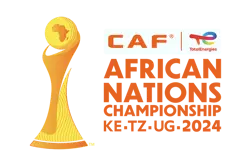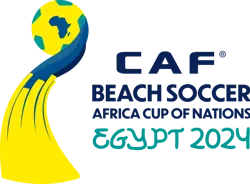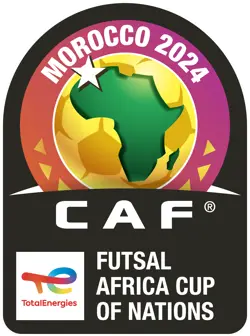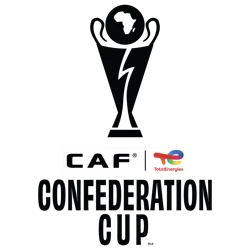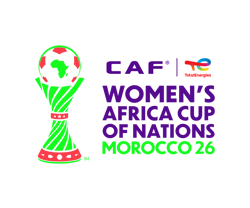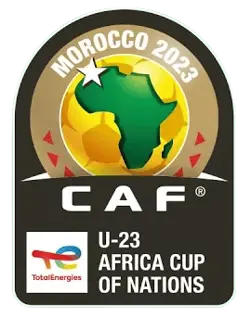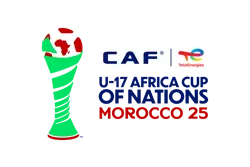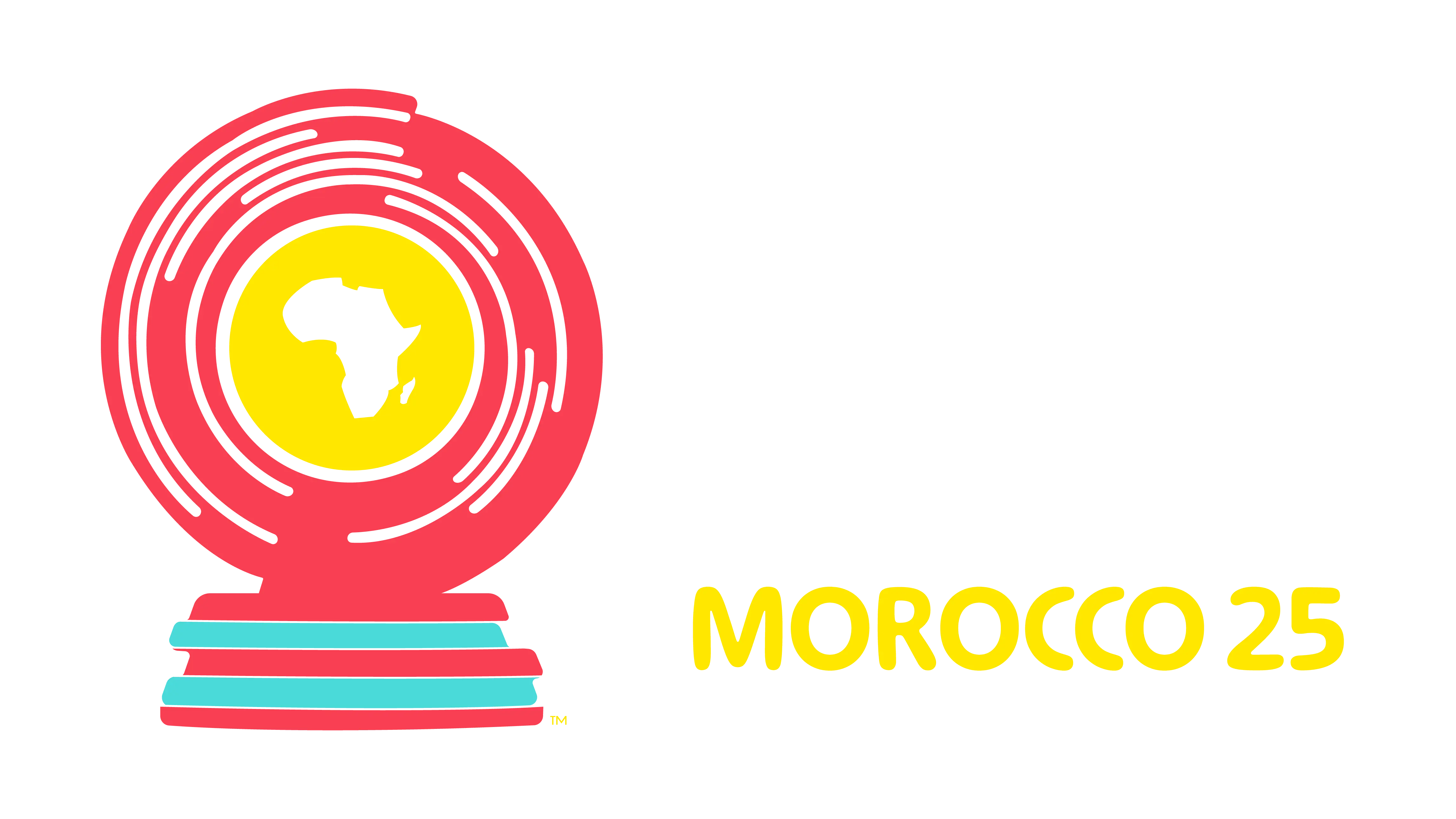Louis René Epée (Cameroon): We aim to be the first CAF Futsal Women's Africa Cup of Nations champions

He is the embodiment of Cameroonian futsal. A passion he devours each time he has to defend, promote, and evolve despite the obstacles and personal sacrifices.
Just days before a new adventure, the CAF Women’s Futsal Africa Cup of Nations, which will take place in Morocco between 22 - 30 April, Louis René Epée the committed and visionary coach, is preparing to lead the Cameroonian team toward a historic achievement.
This competition represents much more than a sporting challenge for him: it’s the culmination of decades of hard work to make futsal a leading sport in Cameroon and Africa.
Since 1996, when he discovered futsal at the Yaoundé stadium, Louis René Epée has never stopped dreaming big. By founding National Mfandena 98 and becoming the pioneer of futsal in Cameroon, he laid the first stones of a foundation that he now sees standing at the top of African sport. But this journey has not been without sacrifices: abandoning his career as a librarian-bookbinder, dedicating himself and carrying the ambition of Cameroonian futsal, despite an often reluctant environment, all of this has shaped his extraordinary path.
His ambitions are clear: to make Cameroon shine on the African stage, to offer his players the visibility they deserve, and, even more, to lay the foundations for the development of this discipline in Africa. With his team, it’s not just about participating, but leaving a lasting imprint on the history of women’s futsal.
The coach sat down with CAFOnline to talk about his sides’ chances and objectives in Morocco.
Cafonline.com: Cameroon is in Group A, with Morocco and Namibia. What are your thoughts on these opponents?
Louis René Epée: First, these are the impressions of futsal enthusiasts who are proud to see elite competitions take place. We are happy to play futsal, whether for women or men, with increased commitment and seriousness.
From a technical standpoint, facing Morocco means dealing with a well-prepared, structured team with a true culture of high-level futsal. This requires intense work. On our side, we have international experience, but we sometimes face challenges in structuring ourselves properly. So, it will be a tough match between an experienced team and a team still under construction.
As for Namibia, they are a team to take seriously. Their discipline and the organization of their federation are indicators of a well-structured, committed, and difficult-to-manipulate team. We will need to rise to their tactical challenges.
You are a key figure in women's futsal in Cameroon, having led international campaigns, including the 2018 Youth Olympic Games in Buenos Aires. What significance does this first Women's Futsal Africa Cup of Nations have in your journey?
I prefer to see myself as a worker still building the structure. This Women's Futsal AFCON is another step forward in promoting futsal and women’s sport in Africa. Giving women the opportunity to express themselves in this discipline is a significant advancement.
How have your players reacted to this historic first participation in a Women’s Futsal Africa Cup of Nations?
With much enthusiasm, commitment, and curiosity. Our supporters are following this adventure with interest, and our players are doing everything they can to live up to expectations. This participation is an opportunity for young Cameroonian girls and African girls to now envision a future in this discipline.
This AFCON is a new avenue for social, sporting, and cultural promotion.
You are passionate about futsal. How did you discover this discipline, and what role does it play in your life?
I discovered futsal while practicing handball, then thanks to the proximity of my home to the Yaoundé stadium. I I was ntroduced to futsal by Mr. Tchoya in 1996 and became passionate and involved, founding National Mfandena 98 of Yaoundé as a player-coach.
After winning several national titles in 1998, the Cameroonian Football Federation asked me to promote the discipline, a mission that led me to leave my job as a librarian-bookbinder. Thanks to the Federation's recognition, I took training courses in Libya (2008) and Egypt (2010), before leading the first national futsal team of Cameroon.
My life is dedicated to futsal. My children discovered it before any other sport, and my profession is officially recognized on my identity papers. In 2000, I presented this discipline to the President of the Republic of Cameroon, His Excellency Mr. Paul Biya. Today, I make a living from futsal through training, coaching, and the development of Cameroonian football, advocating for futsal as an educational tool.
What are your ambitions for this competition?
Our ambition is clear: it’s the title. When participating in an elite competition, it’s not only for oneself but for the flag you defend, for the nation, and for the state. The goal is to win, to qualify, and to become champions.
Initially, it’s about qualifying for the World Cup, then winning the African championship. The key match that will determine the course of our journey is the one against Morocco. We initially thought it would be played on the 22nd, but it will now take place on the 24th. This gives us two to three extra days of preparation, which is significant for us.
Can you describe your group and its characteristics?
From a technical standpoint, they are good players, capable of exploiting their limited resources to the fullest. They are committed to the task, vigilant, and show great respect for the opponent.
Physically, they are strong and resilient, which allows them to withstand more experienced opponents. Tactically, they are starting to develop an approach to high-level play, although some phases still need improvement.
Finally, mentally, we aim for excellence because this is a key aspect that can make the difference in competition. On a scale of 10, I would rate our group at 7, which shows there is still room for improvement, but also real potential.
Beyond sporting performance, as the CAF Women's Futsal Africa Cup of Nations marks a new era for the discipline, what is your wish for the development of women’s futsal in Cameroon and Africa?
My main wish is for there to be more consideration for women’s futsal. This consideration starts with better communication around the discipline. The interview I’m having with you today is a big first for women’s futsal, and it’s already an advancement. Being listened to, being highlighted, boosts morale and motivates the stakeholders in the discipline.
Next, it’s essential to think about gender parity in futsal participation, whether at FIFA, CAF, or national federations, including in Cameroon. Parity is vital not only in the practice of futsal but also in the media and institutional recognition of the discipline.
Finally, there needs to be broader communication. Whether through print media, radio, television, or digital platforms, it is crucial that women’s futsal is talked about and given the visibility it deserves.
More

